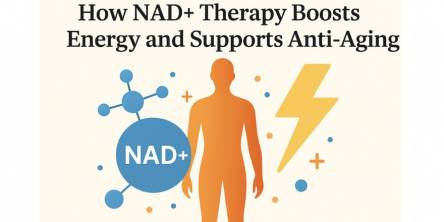Decorate Your Home with Plants to Improve Your Health

There are plenty of aesthetic reasons to decorate with indoor houseplants. They're appealing, they add a personal touch, they create atmosphere, and they give you a chance to show off your artistic side. That's a pretty good list of reasons by itself, but here's another that many people aren't aware of: Indoor plants can benefit your health!
Both physical and mental health is improved by a wide variety of houseplants. The following are the four main benefits you can expect from decorating with indoor plants.
Stress Reduction and Mental Health
There is a significant body of scientific research that indicates simple contact with indoor plants reduces stress and improves mood.
There is a basic working theory behind this phenomenon. Humanity spent millions of years evolving in close contact with plants, while the pattern of spending most of our time in plant-free indoor and urban environments is relatively new. Contact with plants has a natural calming effect and has even been shown in some studies to reduce blood pressure, which may be attributed to restoring the natural environmental balance that we are adapted to.
Plants Can Impact Our Health Overall
Did you realize that your home, office, school and different structures that you generally visit may contain poisonous substances and gases noticeable all around that can contrarily affect your wellbeing?
You can step foot in a building and not by any means know whether you are taking in possibly dangerous or risky synthetics, including carbon monoxide, particulates, microbial contaminants, ecological allergens, radon, unstable natural mixes (VOCs) and different substances that can add to hypersensitivities and other unfavorable medical issues.
Air quality inside your home and the structures that your successive ought to be of fundamental worry for your general wellbeing, prosperity, and solace. Appropriate ventilation and filtration are basic to enhance indoor air quality.
Air Quality
The most basic function of a plant is to take in carbon dioxide and transform it into oxygen. Plants do this with more than just carbon dioxide, however. Different types of plants absorb all sorts of different chemicals and compounds, many of which are toxic to humans and commonly found indoors.
Plants can absorb a variety of volatile organic compounds (VOCs) and disperse them. For example, quite a few members of the palm tree family naturally absorb benzene, a coal byproduct commonly found in cigarette smoke, paint, and varnish.
Of course, a plant is not simply a natural HVAC filter all by itself. You need the right type of plant in the right quantity (and with sufficient light) to absorb the specific toxins that might be a problem. You also need to make sure the soil does not contain harmful chemicals or bacteria that the plant might emit into the home.
Sleep Quality
Quality sleep is a big problem for many people. A chronic lack of it can increase your risk for all sorts of serious health issues, like heart disease and high blood pressure.
Indoor plants can help to promote good sleep in a number of ways. One is their role as a natural oxygen producer and toxin filter. Another is in producing pleasing and calming fragrances. Lavender, chamomile, and ylang-ylang are three of the leading aromatics for this purpose.
Natural Humidifiers
Though it can take a significant density with certain types to see significant results, many plants do act as natural humidifiers. Among the best performers are members of the fern and palm family, as well as peace lilies.
One final thing to keep in mind is that though some of these houseplants perform wonders, many of the best plants for air quality and humidity are also toxic to both people and animals if ingested. Keep them out of reach of curious little hands and paws, however, and they'll provide you with a lifetime of improved health.
Similar Articles
NAD+ therapy restores cellular energy, enhances metabolism, and promotes anti-aging by supporting DNA repair and improved overall vitality.
Seasonal Affective Disorder (SAD) is a type of depression linked to seasonal changes, most commonly seen during the late fall and winter months when sunlight exposure decreases
Enhance sleep comfort and support with a mattress topper queen. Discover how the right topper improves pressure relief, temperature control, and rest.
If your mind refuses to be quiet the moment your head touches the pillow, welcome to the club. Overthinking at night has silently become nearly synonymous with modern forms of insomnia.
Discover how longevity clinics use key biomarkers to assess ageing, improve health, and guide personalized wellness strategies for a longer, healthier life.
Halitosis, sometimes known as foul breath, affects millions of individuals worldwide and can cause humiliation, influencing everyday interactions and confidence.
In the modern world, maintaining good health often feels like a constant challenge. Between busy lifestyles, sedentary habits, and lack of motivation, many people find it difficult to stay consistent with exercise, diet, or wellness practices.
Learn how UV toothbrush sanitizers use UV-C light to kill 99.9% of bacteria, viruses, and fungi—backed by science for better oral health.
In the past, the experience of soaking in a hot tub or relaxing in a sauna was something reserved for spas, health clubs, or luxury retreats









